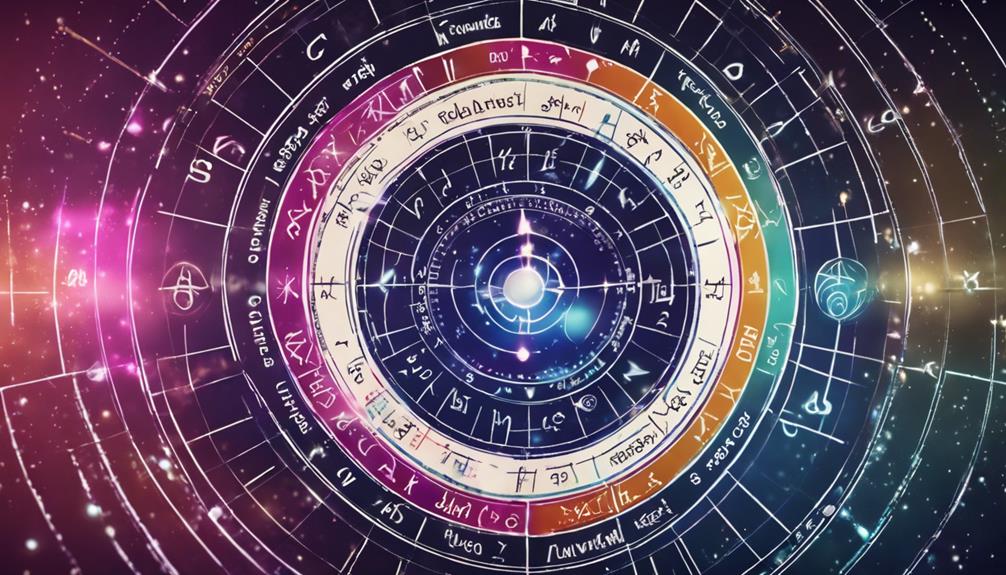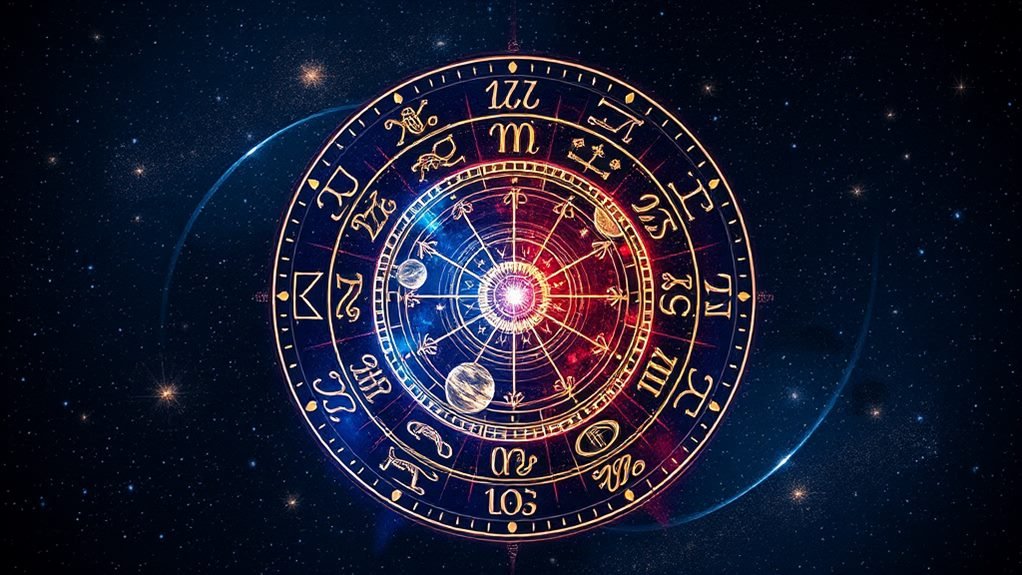Unraveling the Mysteries: How Astrology Started

Astrology, the practice of interpreting the movements and positions of celestial objects to divine information about human affairs, has been a subject of fascination for centuries. Its origins, however, remain shrouded in mystery. In this section, we will explore the history of astrology, tracing its roots back to ancient civilizations and examining its evolution to modern-day practices.
Curious about how astrology started? Read on to uncover the secrets behind this ancient art.
The Ancient Roots of Astrology
Astrology is an ancient practice that dates back millennia. The origins of astrology can be traced to the civilizations of Mesopotamia, Egypt, and ancient Greece. These early practitioners were fascinated by the movements of the stars and planets, and they believed that they could use these movements to predict the future and gain insight into the workings of the universe.
One of the earliest known examples of astrology comes from the Babylonians, who developed a system of astrological omens around 1800 BCE. The Babylonians believed that the movements of the planets and stars had a direct influence on human affairs, and they used astrological predictions to guide their political and military decisions.
Ancient Egyptian astrology was centered around the concept of the zodiac, with each month of the year associated with a different animal symbol. The Egyptians believed that these animals had particular powers and characteristics that could influence the lives of people born under their sign.
| Ancient Civilizations | Key Features |
|---|---|
| Mesopotamia | Developed a system of astrological omens |
| Egypt | Centered around the concept of the zodiac |
| Ancient Greece | Believed that the movements of the planets and stars had a direct influence on human affairs |
Ancient Greek astrology emerged around the 4th century BCE, and it was heavily influenced by the Babylonians. The Greeks believed that the planets and stars had a profound effect on human destiny and character. They developed a system of astrological houses, which divided the sky into 12 sections, each with its own set of planetary rulers.
These early astrological practices had a significant influence on the development of Western astrology and continue to shape modern interpretations of astrological symbolism.
The Role of Astrology in Different Cultures
Astrology has played a significant role in the cultures of various civilizations throughout history. While it is believed that the practice of astrology originated in Mesopotamia around 3000 BCE, it quickly spread to different cultures and evolved over time to reflect the unique beliefs and traditions of each society. In this section, we will explore how astrology played a role in the development of Chinese, Indian, and Mayan cultures.
Astrology in Chinese Culture
Ancient Chinese astrology was rooted in the Taoist philosophy of Yin-Yang and the Five Elements. It was believed that the alignment of the stars and planets could influence a person's destiny and personality. Chinese astrologers developed a 12-year cycle that corresponds to the 12 zodiac signs, with each cycle representing an animal. The different animals were thought to have distinct personality traits and characteristics.
| Animal | Corresponding Year |
|---|---|
| Rat | 2020, 2008, 1996, 1984, 1972, 1960 |
| Ox | 2021, 2009, 1997, 1985, 1973, 1961 |
| Tiger | 2022, 2010, 1998, 1986, 1974, 1962 |
The Chinese also developed a system of astrology based on the Five Elements: water, wood, fire, earth, and metal. Each element was associated with a planet and corresponding zodiac sign, and it was believed that a person's birth element could influence their destiny.
Astrology in Indian Culture
Ancient Indian astrology, or Jyotish, is based on the belief that the stars and planets influence a person's destiny and character. Jyotish is closely tied to Hinduism and the Vedas, which are ancient Indian scriptures. Indian astrologers use a 27-star system, known as the nakshatras, to describe the moon's path through the zodiac. Each nakshatra is associated with unique attributes and characteristics.
Indian astrology also incorporates the Hindu concept of karma, the belief that a person's actions in past lives can influence their current life. Astrologers use a person's birth chart, or horoscope, to gain insight into their past, present, and future.
Astrology in Mayan Culture
The Mayan civilization, which flourished in ancient Central America, had a complex astrology system that is still studied and revered today. Mayan astrology is based on a 260-day calendar, known as the Tzolk'in. The calendar is divided into 20 periods, each with a different ruling energy, and each period is associated with a day sign, representing different animals, elements, and gods.
Mayan astrologers also used a separate 365-day calendar, known as the Haab, which corresponded to the solar year. The Haab was divided into 18 months, each with 20 days, and a final five-day period known as the Wayeb. The Wayeb was thought to be a time of spiritual purification and was celebrated with rituals and offerings.
Astrology has played a significant role in the cultural beliefs and practices of various civilizations throughout history. The distinct approaches to astrology taken by the Chinese, Indian, and Mayan cultures provide insight into the diverse ways that astrology has evolved over time.
Astrology in the Western World
The origins of astrology can be traced back to ancient civilizations, but it was in the Western world that astrology gained significant prominence. During the medieval and Renaissance periods, astrology played a crucial role in shaping philosophical and scientific thought.
One of the most prominent astrologers of the Renaissance was Johannes Kepler, who believed that the movements of celestial bodies could provide insight into the nature of events on Earth. Kepler used his knowledge of astrology to develop his laws of planetary motion, which revolutionized astronomy.
Astrology in the Age of Enlightenment
Despite its widespread acceptance, astrology also faced significant criticism in the Western world. During the Age of Enlightenment, many intellectuals rejected the idea of astrology as unscientific and irrational.
Despite this, astrology continued to evolve in the Western world. The late 19th and early 20th centuries saw the birth of modern astrology, which combined traditional astrological practices with new psychological and spiritual theories. Prominent modern astrologers include Alan Leo and Dane Rudhyar, who developed new methods of interpretation and chart reading.
The Birth of Modern Astrology
In the late 19th and early 20th centuries, a new wave of astrologers emerged, seeking to update and popularize the practice of astrology. One of the most prominent figures of this period was Alan Leo, who founded the Astrological Lodge of London and authored numerous books on astrology.
Leo was instrumental in introducing astrology to a wider audience, emphasizing its potential for personal growth and self-discovery. He also incorporated elements of Theosophy and other spiritual movements into his astrological teachings, helping to create a more holistic approach to the practice.
Dane Rudhyar and the Humanistic Astrology Movement
Another influential figure in the development of modern astrology was Dane Rudhyar, who sought to move astrology away from fatalistic predictions and towards a more humanistic and psychological framework. Rudhyar stressed the importance of free will and personal responsibility in shaping one's destiny, and emphasized the potential for astrology to aid in personal growth and self-awareness.
He also played a key role in popularizing the use of transits and progressions in astrological readings, which involve examining the movements of the planets in relation to an individual's birth chart.
The humanistic astrology movement that Rudhyar helped to inspire continues to be a major force in modern astrology, emphasizing the potential for astrology to help individuals confront and overcome personal challenges.
Astrology and Astronomy: Interconnected yet Distinct
Astrology and astronomy have always been closely linked, sharing a common origin in the observation of celestial bodies. However, they differ in their methodologies and goals. While astronomy is a science that seeks to understand the physical properties and behavior of the universe, astrology is an art that uses the movements of celestial bodies to gain insight into human affairs.
Despite their differences, there is a rich history of collaboration between these two fields. In ancient times, astronomers and astrologers often worked together, and many historical figures, such as Galileo Galilei and Johannes Kepler, were proficient in both disciplines.
However, as science and empirical observation began to overtake superstition and mystical thinking, astrology began to lose its credibility as a legitimate field of study. While astronomy continued to thrive as a respected scientific discipline, astrology was relegated to the realm of pseudoscience.
Today, there are still many who believe in the validity of astrology as a tool for gaining insight and understanding. However, it is important to remember that astrology is not a science, and its predictions and interpretations should be taken with a grain of salt.
The Influence of Astrology on Society
Astrology has had a significant impact on various aspects of society throughout history. From politics to popular culture, astrology has been a topic of interest and debate for centuries.
The Influence of Astrology in Politics
Astrology has been utilized in politics throughout history. Many leaders have consulted astrologers for guidance in making important decisions. For example, former US President Ronald Reagan was known to consult astrologers before making major decisions during his presidency.
Astrology has also played a role in election campaigns. Campaigns have been planned around astrological cycles in an effort to increase the likelihood of success.
The Influence of Astrology in Popular Culture
Astrology has been a popular topic in various forms of media, including books, music, and film. Many celebrities and public figures are known to follow their astrological charts and horoscopes. Astrology has also been a popular subject in reality shows and entertainment news.
"Astrology is one of the earliest attempts made by man to find the order hidden behind or within the confusing and apparent chaos that exists in the world." - Karen Hamaker-Zondag
The Role of Astrology in Personal Self-Discovery
Astrology is often used as a tool for self-discovery. Many individuals turn to astrology to gain insight into their personality traits, strengths, and weaknesses. Astrology can also provide guidance on career choices, relationships, and life decisions.
While astrology is not a scientifically proven tool for self-discovery, many individuals find value in its teachings and use it as a means for personal growth and reflection.
Debunking Astrology: Skepticism and Criticism
Astrology has always been surrounded by skepticism and criticism, with many dismissing it as a mere pseudoscience. While there are those who swear by its accuracy, there are others who remain unconvinced by the claims made by astrologers.
The scientific community, in particular, is highly critical of astrology, arguing that there is no empirical evidence to support its claims. Scientists argue that astrology relies on vague and general statements that are easily applicable to anyone, regardless of their astrological sign or birth chart. Critics also point out that astrology's predictions and readings are often based on subjective interpretation, rather than objective data.
"Astrology’s predictions are so general that they could apply to anyone. They are designed to be vague, open to interpretation and easily manipulated to suit anyone’s needs."
- Dr. Joel Wallach, Biochemist and Naturopathic Doctor
Despite the criticism, astrology has remained popular throughout history, with many people finding comfort and guidance in the insights provided by astrologers. However, it is important to approach astrology with a critical eye and not to place too much faith in its predictions.
It is essential to remember that astrology is not a science, and its claims should be viewed with healthy skepticism.While astrology may offer some insights into our lives, it is important to remember that it is not a substitute for science or professional advice. It is essential to remain grounded in reality and to seek out evidence-based information when making important decisions.
Astrology Today: Contemporary Practices
Astrology has evolved over time and is still practiced in various forms and traditions across the world. Today, astrology is not only a tool for personal self-discovery but also used in fields like psychology, business, and medicine.
The Role of Technology
With the advancement of technology, astrology has become more accessible to the masses. Online horoscopes, astrological apps, and video conferencing for astrological consultations have made it easier for people to integrate astrology into their daily lives. However, some astrologers argue that the personal rapport between the astrologer and client is essential and cannot be replaced by technology.
Diversity of Astrological Traditions
There are various astrological traditions with different methodologies and interpretations. Western astrology, also known as tropical astrology, is based on the movement of the sun and planets in relation to the Earth's equator. In contrast, Vedic astrology, also known as Jyotish, is based on the sidereal zodiac, which considers the exact position of the stars. Other traditions include Chinese astrology, Mayan astrology, and Hellenistic astrology.
The Integration of Astrology and Psychology
Astrology has been integrated into various fields, including psychology. Psychologists use astrology as a tool to gain insights into their patients' personalities, motivations, and life paths. Astrologers also use psychology to understand their clients better. The practice of psychological astrology focuses on the client's psychological makeup and seeks to understand how it affects their life.
Controversies
Despite its popularity, astrology continues to face skepticism and criticism from some quarters. Some critics argue that astrology is not scientifically proven and is based on superstition. Others state that horoscopes are too generalized and vague, making them applicable to anyone. However, supporters of astrology argue that it is a useful tool for self-awareness and personal growth, and that its evolution and continued practice over thousands of years demonstrate its validity.
The Future of Astrology
The continued evolution of astrology raises some interesting questions about its future. Predicting the future has always been one of the core tenets of astrology, but what does the future hold for astrology itself? Here are some possible scenarios:
- Technological advancements: As technology continues to advance, astrology may become more accessible and customizable. Astrologers can leverage artificial intelligence (AI) to generate birth charts and make more informed predictions based on an individual's unique personality and life path.
- New astrological practices: Astrology has always been a dynamic field, with different cultures and regions adding their own unique interpretations and practices. In the future, we may see the emergence of new astrological traditions, each with their own unique focus and approach.
- Increased skepticism: Despite its enduring popularity, astrology still faces criticism from skeptics who view it as pseudoscience. As scientific understanding continues to advance, it's possible that astrology will face increasing skepticism and scrutiny.
- Greater mainstream acceptance: On the other hand, astrology has become increasingly mainstream in recent years. As more people turn to astrology for guidance and validation, it's possible that astrology will become more widely accepted as a legitimate tool for self-discovery and personal growth.
- Integration with other fields: Astrology shares many similarities with other fields, such as psychology and spirituality. In the future, we may see increased integration between astrology and these other fields, with each discipline benefiting from the insights and practices of the others.
Ultimately, the future of astrology is impossible to predict with certainty. However, as its history has shown, astrology is a resilient and adaptive field that has stood the test of time. No matter what the future holds, astrology will continue to evolve and grow, offering people a unique perspective on their lives and the world around them.
The FAQ about Astrology's Origins
Q: What is astrology?
A: Astrology is the study of the influence of celestial objects on human lives and events. It is a form of divination that has been practiced for thousands of years.
Q: Where did astrology originate?
A: The origins of astrology are unclear, but the practice dates back to ancient civilizations such as Mesopotamia, Egypt, and ancient Greece. It has since evolved and spread to various cultures throughout history.
Q: Is astrology a science?
A: Astrology is not considered a science by the scientific community, as its claims have not been empirically demonstrated. However, it remains a popular belief and practice for many individuals.
Q: How does astrology work?
A: Astrology is based on the idea that celestial bodies, such as planets and stars, have an influence on human lives and events. Astrologers use various methods, such as birth charts and horoscopes, to interpret and predict these influences.
Q: Do all astrologers practice the same way?
A: No, there are various astrological traditions and approaches, such as Western astrology, Vedic astrology, and Chinese astrology. Each has its own unique methods and interpretations.
Q: Is there any scientific evidence to support astrology?
A: There is currently no scientific evidence to support the claims of astrology. However, some studies have found correlations between astrological factors, such as birth month, and certain traits or tendencies.
Q: Can astrology predict the future?
A: Astrology is often used for predictive purposes, such as forecasting upcoming events or outcomes. However, its accuracy and reliability is a subject of debate and skepticism among scientists and skeptics.
Q: Is astrology a form of religion?
A: Astrology is not considered a religion, as it does not involve worship or adherence to a specific doctrine or deity. However, it can be seen as a form of spirituality or belief system for some individuals.
Conclusion
While astrology may be a subject of controversy and debate, its origins and evolution remain a fascinating topic. Whether you are a skeptic or a believer, understanding the history and practices of astrology can offer insight into the human experience and our relationship with the cosmos.
🔴 Need Clarity on your Situation?



